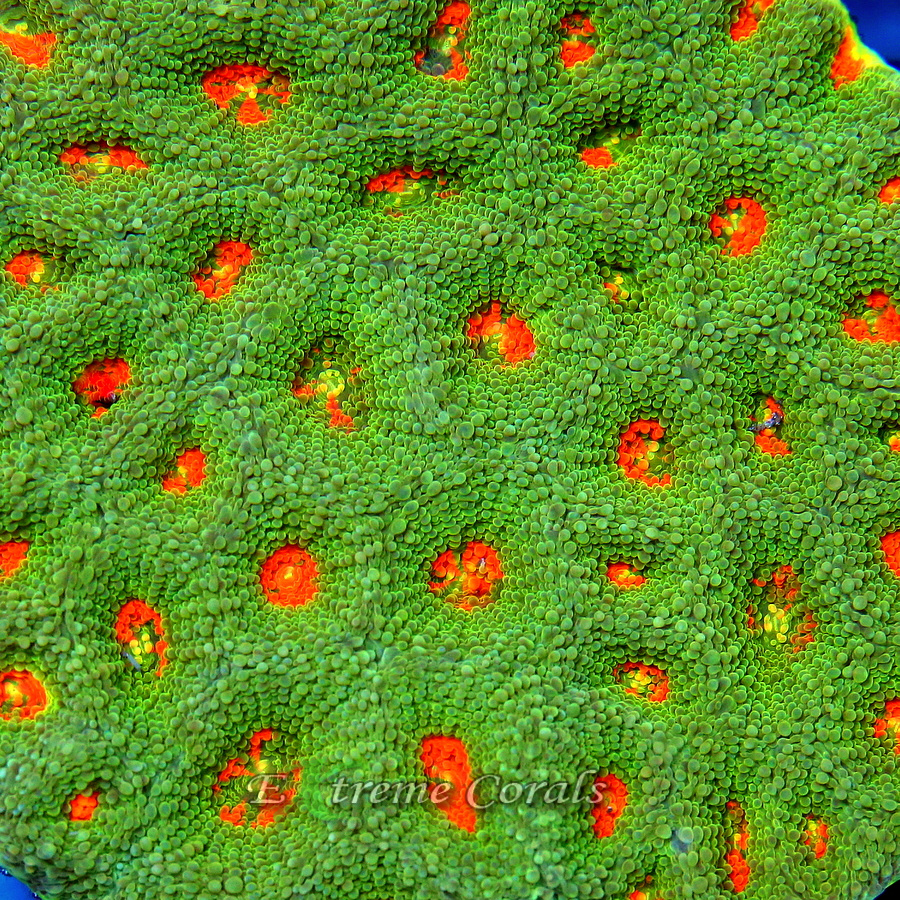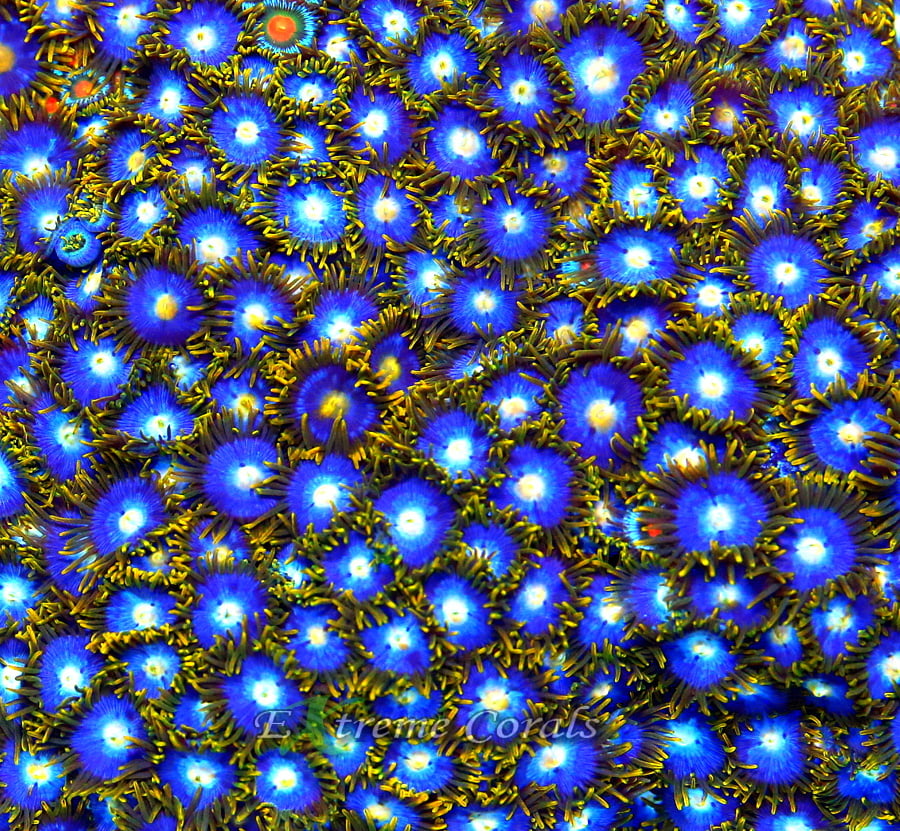Extreme Corals News and Updates
Understanding Coral Microbiomes: How Bacteria and Algae Support Coral Health
Discover How Coral Microbiomes Drive Growth, Immunity, and Color in Your Reef Tank
Learn how beneficial bacteria and zooxanthellae algae impact coral health, growth, and color in this guide to the coral microbiome
by scott Shiles • November 13, 2024
Reef Tank Maintenance, Reef Tank Equipment, All Corals
The Secret to Thriving Corals: The Coral Microbiome
Corals are much more than just colorful marine organisms—they are complex systems teeming with beneficial bacteria and algae, collectively known as the coral microbiome. This hidden world of microorganisms is essential for coral health, as these tiny partners play crucial roles in nutrient processing, immunity, and maintaining the vibrant colors corals are known for.
In this article, we’ll dive deep into the importance of the coral microbiome, explore the roles of different bacterial species, and discuss the incredible relationship corals share with zooxanthellae algae.
What is the Coral Microbiome

The coral microbiome consists of a unique combination of bacteria, algae, fungi, and viruses that live on and within coral tissues. Just like the human gut microbiome, the coral microbiome plays a significant role in health, supporting coral growth, protecting against disease, and helping corals adapt to changing environments.
The microbiome is an integral part of a coral’s biology, influencing its ability to absorb nutrients, grow, and even resist environmental stressors. Without a healthy microbiome, corals struggle to thrive and are more susceptible to diseases and environmental pressures.
The Role of Bacteria in Coral Health
Coral health bacteria play a foundational role in supporting coral growth and immunity. Some of the essential functions of coral-associated bacteria include nutrient recycling, pathogen defense, and promoting coral growth through symbiotic relationships.
- Nutrient Cycling and Support for Coral Growth Bacteria living in the coral microbiome help recycle essential nutrients like nitrogen and sulfur, making them available for coral tissues. By converting waste into usable compounds, bacteria create a nutrient-rich environment that supports coral growth, particularly in nutrient-poor reef environments.
- Pathogen Defense and Immunity Beneficial bacteria act as a natural defense system for corals, outcompeting and inhibiting the growth of pathogenic (harmful) bacteria. These “good” bacteria produce antimicrobial compounds that protect the coral from infections, much like probiotics support human health by balancing gut bacteria.
- Influencing Coral Coloration Some bacteria are also believed to play a role in coral coloration, either directly or by influencing the health and density of zooxanthellae algae. A healthy microbiome can lead to more vibrant, rich coral colors, contributing to a visually stunning reef tank.
Zooxanthellae: The Algal Partner Powering Coral Health
One of the most critical elements of the coral microbiome is zooxanthellae algae (often from the genus Symbiodinium), which live within coral tissues and provide energy through photosynthesis. The relationship between corals and zooxanthellae is symbiotic, meaning both organisms benefit from the partnership.
- Providing Nutrients through Photosynthesis Zooxanthellae harness sunlight to produce sugars and oxygen, which are then used as energy sources for the coral. This process provides up to 90% of the energy corals need to grow, reproduce, and maintain their structures. This symbiotic relationship is why corals require adequate lighting in a reef tank.
- Enhancing Coral Coloration The pigments in zooxanthellae also contribute to coral colors. As zooxanthellae density increases, corals often appear brighter and more colorful. This effect is especially pronounced in corals with high densities of zooxanthellae, like Acropora, giving them their signature hues.
- Assisting Coral with Environmental Stress In times of stress, such as increased water temperatures, corals may expel their zooxanthellae in a process known as coral bleaching. This loss leaves corals vulnerable, as they rely on zooxanthellae for nutrients. Maintaining stable water conditions helps protect this symbiosis, reducing the risk of bleaching and preserving coral health.
How to Support the Coral Microbiome in Your Reef Tank
Maintaining a healthy coral microbiome is essential for a thriving reef tank. Here are some practical tips to support the coral microbiome and ensure your corals continue to benefit from their microscopic partners:
Provide Stable Water Parameters
Corals are sensitive to fluctuations in water conditions, especially temperature, pH, and salinity. Maintaining stable parameters helps keep the microbiome balanced, reducing the risk of stress and bleaching.
Ensure Proper Lighting
Adequate lighting is crucial for zooxanthellae health, as it supports photosynthesis. Ensure that your lighting system provides the right spectrum and intensity based on the species of coral in your tank, as different species have varying light requirements.
Feed Corals with Nutrient Supplements
Though zooxanthellae provide a significant amount of energy, supplementing with coral foods that contain amino acids and fatty acids helps corals meet additional nutritional needs, supporting a healthy microbiome. Consider coral foods like phytoplankton or specialized liquid feeds.
Use Probiotics to Support Beneficial Bacteria
Adding probiotics formulated for reef tanks can help balance the microbiome, promoting beneficial bacteria that protect against pathogens. Some reef products are designed specifically to enhance bacterial diversity and support coral health.
Avoid Over-Cleaning
The microbiome relies on a natural balance of bacteria, algae, and other microorganisms. Overusing chemical cleaners or frequently disturbing the tank can disrupt this balance, making corals more susceptible to stress and diseases. Instead, rely on natural methods like algae-eating invertebrates to help maintain cleanliness.
Debunking a Common Myth: Corals and "Sterile" Tanks
One common misconception is that corals thrive best in ultra-clean, “sterile” tanks with no algae or bacteria. In reality, a sterile environment disrupts the natural microbiome, depriving corals of the beneficial bacteria they rely on for health. A well-balanced reef tank contains a diverse array of microorganisms, creating a resilient environment that supports coral health.
Embrace the Power of the Coral Microbiome
Understanding the coral microbiome sheds light on how intricate and resilient corals truly are. By supporting beneficial bacteria and maintaining healthy zooxanthellae populations, reef hobbyists can help their corals thrive. Fostering this microscopic ecosystem within your tank allows corals to reach their full potential, resulting in more vibrant colors, healthier growth, and a stunning display of life.
Whether you’re a beginner or a seasoned aquarist, taking steps to protect and nurture the coral microbiome will contribute to a balanced and flourishing reef environment. By acknowledging the essential role of bacteria and algae in coral health, you’re setting up your reef tank for long-term success.

